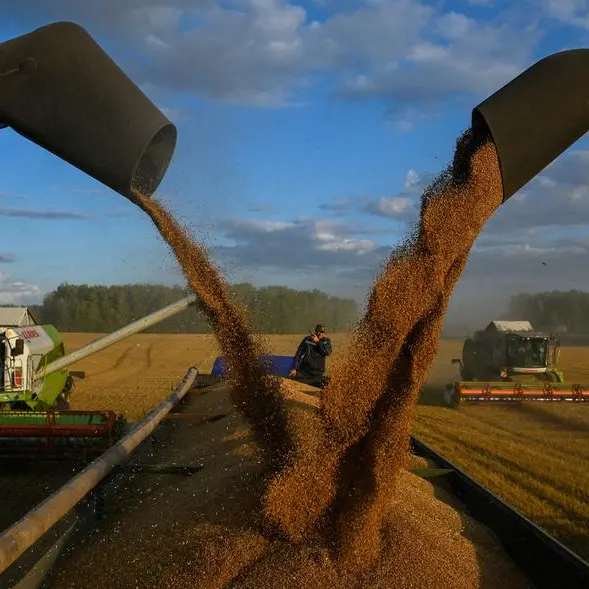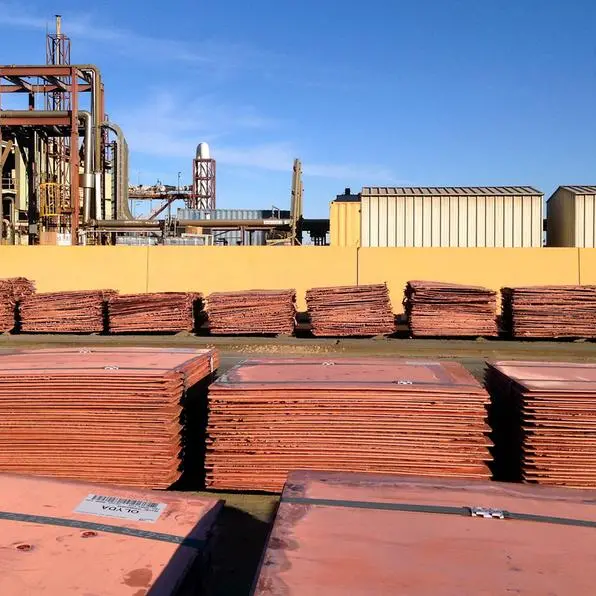PHOTO
SINGAPORE: Commodities from oil to metals and grains slid on Wednesday as the dollar strengthened, with investors increasingly pricing in that Donald Trump will win the U.S. presidential election.
Trump has won the 270 electoral votes needed to claim victory over challenger Kamala Harris, according to Fox News, but other news organizations have yet to declare him the winner though he remains in the lead.
Oil and soybean prices fell about 1.5%, while copper dropped more than 2% in Asian trade on pressure from the U.S. dollar rally. Precious metals, including gold held steady.
"This is the initial response in commodities markets to U.S. vote counting and early results favouring Trump victory," Ole Hansen, head of commodity strategy at Saxo Bank, told Reuters.
"The main focus is that if we will see a Trump 2.0 scenario, we are likely to see tariffs on Chinese goods, which is negative for metals with China being the big consumer of copper, iron ore and steel. Oil is down on worries over economic growth as tariffs are not good for overall global demand," he said.
China's industrial metals and steel industries could face headwinds if Trump returns to office. Trump has pledged to impose blanket 60% tariffs on Chinese goods to boost U.S. manufacturing.
"China's steel prices will undertake more downward pressure if Trump wins the election, and domestic steelmakers may face even more severe losses," said Ge Xin, deputy director at Lange Steel Research Centre.
"This is because Trump will be more aggressive in terms of measures against China."
Global oil supplies could face disruptions if a Trump administration tightens sanctions on oil shipments from Iran, which exports about 1.3 million barrels per day.
"And Trump may support Israel adopting a tougher military posture against Iran which portends higher near-term risk of a military escalation that might impact supply in the region, said Saul Kavonic, senior energy analyst at MST Marquee.
For agriculture, Beijing may be compelled to respond with retaliatory tariffs on U.S. soybeans if Trump wins and imposes new tariffs on Chinese goods.
While Beijing has reduced its reliance on U.S. soybean imports, the oilseed remains the largest U.S. agricultural export to China.
Spot gold held its ground after hitting a record high of $2,790.15 last Thursday. Gold is considered a hedge against geopolitical and economic uncertainties and tends to thrive in a low-interest-rate environment.
The Federal Reserve starts a two-day monetary policy meeting on Wednesday and is expected to deliver another 25-basis-point rate cut, but a Trump win could complicate the U.S. rate outlook.
"While money markets fully back a 25bp cut - and one seems likely this week - they likely won't want to deliver a dovish message with any cut, given Trump's policies are deemed inflationary," said Matt Simpson, senior analyst at City Index.
"And that could dent gold over the near-term, although I suspect any pullback is likely to remain shallow as gold will retain its safe-haven flows in the early days of a Trump presidency."
(Reporting by Naveen Thukral; additional reporting by Emily Chow in Singapore, Daksh Grover and Ashitha Shivaprasad in Bengaluru and Amy Lv in Beijing; Editing by Tony Munroe and Christian Schmollinger)





















